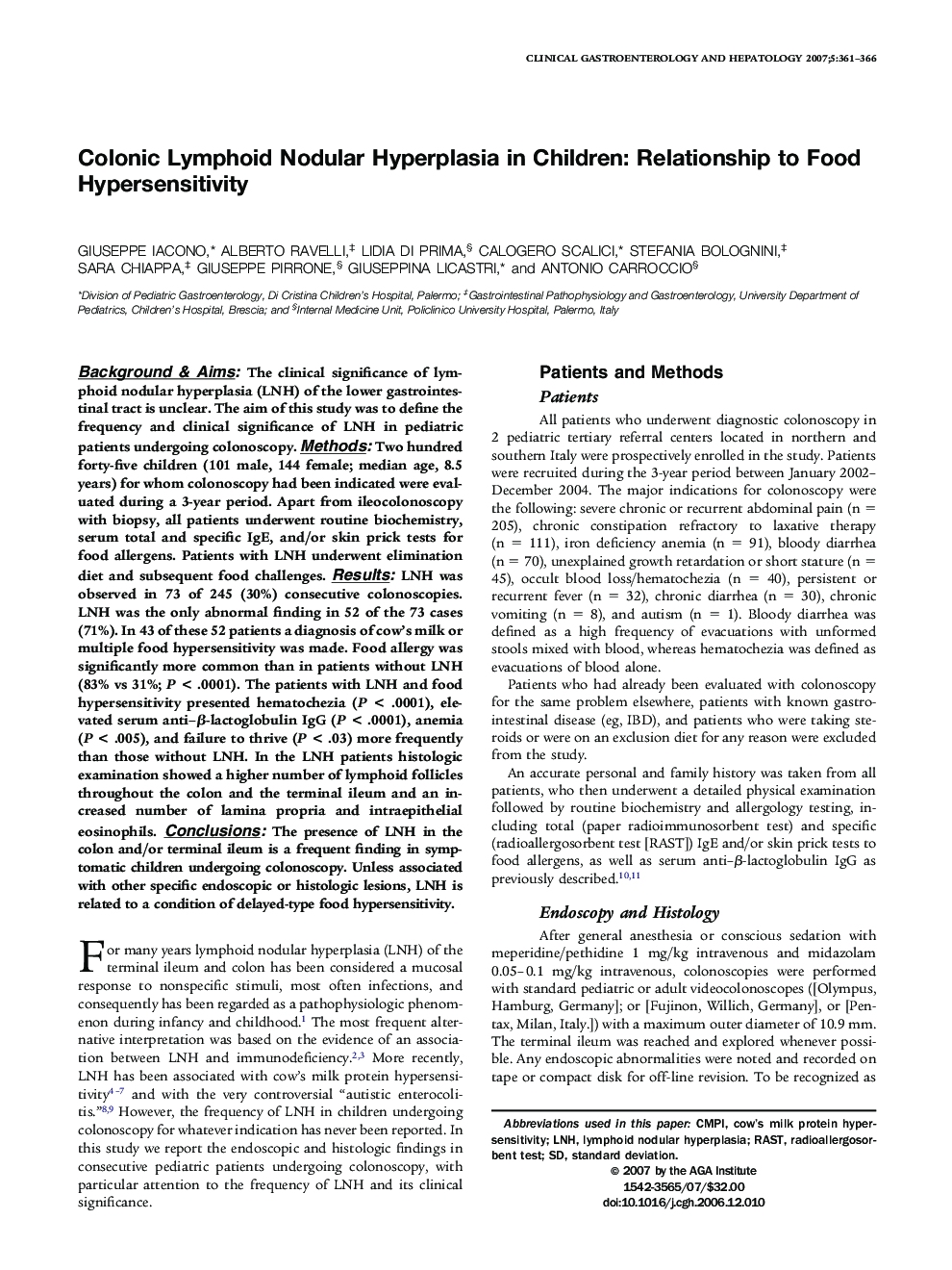| Article ID | Journal | Published Year | Pages | File Type |
|---|---|---|---|---|
| 3285098 | Clinical Gastroenterology and Hepatology | 2007 | 6 Pages |
Abstract
Background & Aims: The clinical significance of lymphoid nodular hyperplasia (LNH) of the lower gastrointestinal tract is unclear. The aim of this study was to define the frequency and clinical significance of LNH in pediatric patients undergoing colonoscopy. Methods: Two hundred forty-five children (101 male, 144 female; median age, 8.5 years) for whom colonoscopy had been indicated were evaluated during a 3-year period. Apart from ileocolonoscopy with biopsy, all patients underwent routine biochemistry, serum total and specific IgE, and/or skin prick tests for food allergens. Patients with LNH underwent elimination diet and subsequent food challenges. Results: LNH was observed in 73 of 245 (30%) consecutive colonoscopies. LNH was the only abnormal finding in 52 of the 73 cases (71%). In 43 of these 52 patients a diagnosis of cow's milk or multiple food hypersensitivity was made. Food allergy was significantly more common than in patients without LNH (83% vs 31%; P < .0001). The patients with LNH and food hypersensitivity presented hematochezia (P < .0001), elevated serum anti-β-lactoglobulin IgG (P < .0001), anemia (P < .005), and failure to thrive (P < .03) more frequently than those without LNH. In the LNH patients histologic examination showed a higher number of lymphoid follicles throughout the colon and the terminal ileum and an increased number of lamina propria and intraepithelial eosinophils.Conclusions: The presence of LNH in the colon and/or terminal ileum is a frequent finding in symptomatic children undergoing colonoscopy. Unless associated with other specific endoscopic or histologic lesions, LNH is related to a condition of delayed-type food hypersensitivity.
Related Topics
Health Sciences
Medicine and Dentistry
Gastroenterology
Authors
Giuseppe Iacono, Alberto Ravelli, Lidia Di Prima, Calogero Scalici, Stefania Bolognini, Sara Chiappa, Giuseppe Pirrone, Giuseppina Licastri, Antonio Carroccio,
